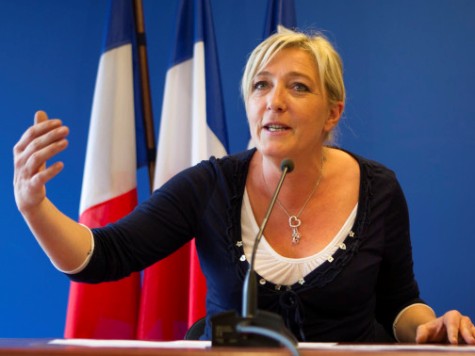
BORDEAUX, France–Much like liberals in America, people in France who lean left are shocked at conservative victories in the French elections for the European Parliament, and are concerned about the next national elections. Both on economic and social issues, the right is surging in France.
Paris is like New York City and Washington, D.C., in one, as both France’s largest urban centre and its capital. France’s elite media commentators and opinion makers are found there, and just like in the United States, these elites often misread national public opinion. In the vast regions of France filled with villages, chateaus, and simple farms, very different values dictate different priorities than one finds in the City of Light.
Situated in the middle of France’s wine country, Bordeaux is a mid-sized city where both sides of the political spectrum are represented. You’ll find a mix of traditional values and economic self-reliance among some French, versus moral relativism and a generic support for socialism among those who insist that a full-time work week should never exceed 35 hours, and that government should provide everyone with healthcare, education, housing, several weeks of paid vacation, and food–all paid for by “the rich.”
The reaction in Bordeaux to the victory of France’s National Front (FN) political party, led by Marine Le Pen, has been similarly mixed. FN’s victories parallel recent victories of the United Kingdom Independence Party (UKIP), though UKIP’s Nigel Farage cites some differences as precluding an alliance between the two.
Although Francois Hollande is only halfway through his term as France’s president, some people are already speculating Nicolas Sarkozy will be the opposition candidate in the next French presidential election, and that he will win back the presidency. Hollande’s socialist policies are perceived by the French as a colossal failure, as reflected in his abysmal 18 percent job approval.
Also interesting is how this plays out regarding social issues. France has a long Roman Catholic history, which is still visible throughout the countryside. For those people–as well as the country’s much smaller Evangelical minority–marriage is a sacred institution with religious foundations, focused on raising children that are the offspring of the natural union of a man and woman.
Kevin is a French tour guide with an American-sounding name. He is young and unmarried, and supports gay marriage. But he talks about France’s high divorce rate, which doesn’t include the growing number of adults who have children without ever getting married.
Standing on the Dune du Pilat overlooking the Atlantic Ocean, Kevin told Breitbart News that being raised by a divorced mother was much harder for him as a male. He is grateful for his hardworking and loving mother, but feels the effects of growing up without a father to provide a firm hand, instil discipline, and supply a role model of how a man should act in daily life.
He says Hollande is a big supporter of redefining marriage to include a man and woman. (He expressed no opinion on polygamy, which is more of an issue in France than in America because of the much higher–and growing–number of Muslims in France, immigrating from Islamic nations where polygamy is legal.) Kevin is confident that Sarkozy, on the other hand, will support traditional marriage.
Nonetheless, Kevin supports Sarkozy over Hollande because Kevin knows his nation is in dire straits, which are getting worse. He doesn’t support Le Pen, and jokes that perhaps she’ll emigrate to the United States. But he supports Sarkozy because Kevin wants economic opportunity for himself and his nation, and has already concluded socialism–or at least Hollande’s expansive version of it–just doesn’t work in real life.
Kevin hasn’t thought through issues of his nation’s cultural identity, immigration, national security, or whether the Eurozone can ever form a cohesive economic unit in light of the foundering economies of Greece and various other hard-left nations. But he firmly believes France can do better.
And he’s not alone. If Kevin reflects the opinion of an increasing number of Europeans, then change may be coming to the Old World. The question for the United States is whether there are a similarly-growing number of young American voters who want to change the direction of the New World in 2014 and 2016.
Ken Klukowski is senior legal analyst for Breitbart News. Follow him on Twitter @kenklukowski.

COMMENTS
Please let us know if you're having issues with commenting.